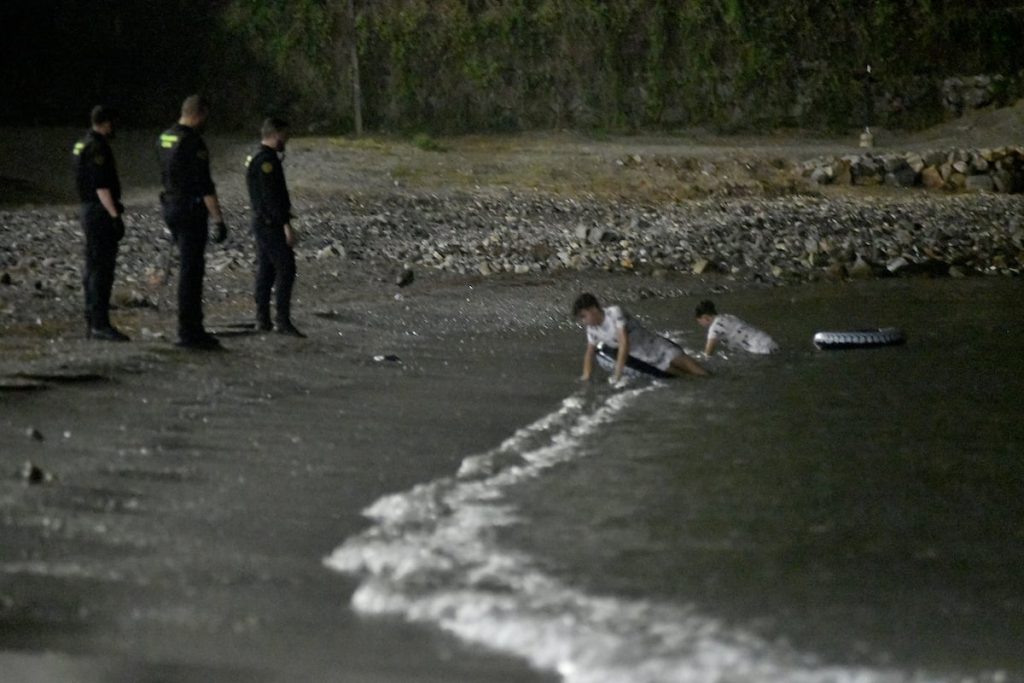Amín and Dalil, two 17-year-old Moroccan youths, are hurrying along the road to the Tarajal industrial estate in Ceuta, close to the border with Morocco. They want to make sure they meet the schedule set by their monitors for a leisure outing and cannot delay. Both have been under the care of the autonomous city since early August, when they decided to swim across the border. In recent days, the autonomous city has been receiving a constant stream of entries of migrant minors, intensifying to the point that on Thursday the local government issued a plea for help to the central government and other autonomous communities to establish mechanisms to transfer these adolescents to other parts of the Peninsula. The city’s reception facilities are overwhelmed and are being reorganized, reallocating space for classrooms, offices, or storage facilities, prioritizing that these children and adolescents have spaces to sleep. The Ceuta government, led by Juan Jesús Vivas, is calling for structural solutions before the situation worsens.
Ceuta had 416 migrant minors under its care until Friday, despite its recognized capacity being around 130. They host five of these children and adolescents per 1,000 inhabitants, while the national average is less than 0.001 per 1,000. Along with the Canary Islands and Melilla, which were the main beneficiaries of a failed immigration reform in Congress, Ceuta has been facing a significant increase in migrant arrivals. Until August 15th, there have been 31,155 arrivals of migrants in Spain by land and sea, a 66% increase compared to 2023. The numbers show a slowdown compared to the beginning of the year, with the Canary Islands experiencing a doubling of arrivals compared to the previous year. The Ceuta-Morocco border has seen a 175% increase in land entries compared to last year, with a total of 1,605 people entering, largely through swimming.
The reasons for these increased arrivals are not entirely clear, but the Ceuta area for minors has noticed a shift in the profiles of the minors entering the city. While previously they accommodated many boys living on the streets, now they come from normalized families. Police and the Prosecutor’s Office for Minors are working overtime these days to determine the ages of the minors. The prosecutor visited the facilities to hear from about 70 minors and gather consent for radiological tests. The main concern is the material assistance required for these youths, as they all need daily meals, shelter, and clothing. The Ceuta-Morocco border has seen a surge in swimming attempts, especially during foggy nights, with hundreds of people attempting to cross the border through the water.
The influx of migrant minors to Ceuta has prompted a call for urgent action and solidarity from the central government and other regions to help relocate these adolescents to alleviate the overcrowding in the reception facilities. The situation has prompted a revisitation of the mechanisms for transferring these minors to other parts of the Peninsula, highlighting the urgent need for structural solutions to address the current crisis. As the pressure continues to mount, the Ceuta government is appealing for more urgent transfers to ease the strain on the reception facilities. The issue of migrant minors entering through swimming routes and the challenges of providing adequate care and support for them in Ceuta is a complex issue that requires coordinated efforts at the national level.


